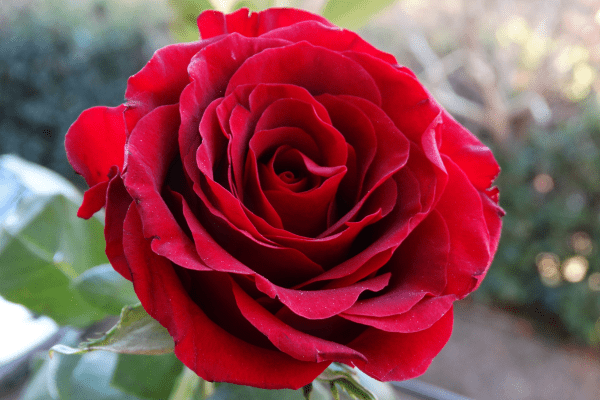You can sign up to our LinkedIn newsletter here.
There’s been lots of talk about Millennials and Boomers and Generation Z but the most encouraging phrase that I’ve heard that characterises an age group is Perennials.
What does it mean to be a Perennial? Well, if you think of it purely in terms of garden plants, then a Perennial is a plant that continues to grow and flower year after year after year. Different from an annual that flowers, seeds and dies, or even a bi-annual, that does that every couple of years. Roses are a great example of a perennial. We have a wonderful rambling rose outside our front door that starts flowering before our wedding anniversary and continues all the way through to the autumn, every single year.
How old do you need to be to be a Perennial? Well, that is the whole point. It is not a designation about when you were born or some judgement about a significant birthday. Rather it is a commitment to continue to thrive, flourish, flower and set seed continually. Perennials may be woody shrubs like lavender: wonderfully scented and attracting bees to their nectar all summer. They may stand tall like the dramatic varieties of iris. They can create swathes of colour in large groups like the daisy-style asters. Or they can dominate a suburb front garden like the majestic pampas grass.
So, what does this mean if you are positioning yourself as a Perennial?
Well, maybe it’s an attitude that you can continue to grow and flourish, flower and bear fruit year after year. You refuse to accept that there is some point in your life, where you move from young to old, from old to elderly, from elderly to aged.
When Groucho Marx said, ‘You’re only as young as the woman you feel’, you might react badly to an ageist, sexist comment from a previous millennium. But as a Perennial, you can feel any age you choose.
You can enjoy all aspects of life, for as long as you like. You can continue to grow in your wisdom, in your adventures, in your relationships, in your purpose and build a bigger legacy for however long you live.
So, what would it mean for you to reframe your thinking about your life stage? To call yourself a Perennial? When would you want to call yourself a Perennial? Perhaps you want to call yourself a Perennial as soon as you feel the age is starting to define you in a negative way.
We hear people saying that sixty is the new forty, or eighty is the new sixty or whatever, but, even then, you are defining yourself with some of the negative aspects of age. When I was young, middle age was seen as this dreaded zone that meant the end of youth. It meant the end of all the hopes of the 18-30 lifestyle. It meant the point at which you had to get serious about life. The point at which your views and your position was becoming solidified. The point at which you had succumbed to the compromises that were represented by marriage, children, mortgage and corporate employment. The middle age crisis, which perhaps happened a little bit later, was the point at which, somehow, you wanted to reject those compromises and seek to recapture your 18-30 lifestyle.
May be the right time to call yourself a Perennial is when you recognise your first flowering and fruitfulness. As a professional, perhaps you are a Perennial when the career ladder is no longer what defines you. You carry the freedom to step sideways into something else. You are ready to experience new adventures because you are no longer defined by your first job or your first major corporate employment.
Maybe for you, Perennial will mean that you can enjoy all the things that are associated with youth, even if not perhaps at the same tempo. As a Perennial, it’s never too late to start a new skill. It’s never too late to travel to a new place. It’s never too late to create a new relationship. It’s never too late to find a fresh passion.
Who do you know in your life who already carries the attitude of being a Perennial? Can they be a role model for you? Increasingly, we are seeing that advertising seeks to challenge ageist assumptions, by presenting older people acting outside the expectations of their age. Too often all they’re doing is seeking to shock rather than accepting that, for Perennials, this is normal life.
Are you ready to join the Perennials!

Charles McLachlan is the founder of FuturePerfect and on a mission to transform the future of work and business. The Portfolio Executive programme is a new initiative to help executives build a sustainable and impactful second-half-career. Creating an alternative future takes imagination, design, organisation and many other thinking skills. Charles is happy to lend them to you.
